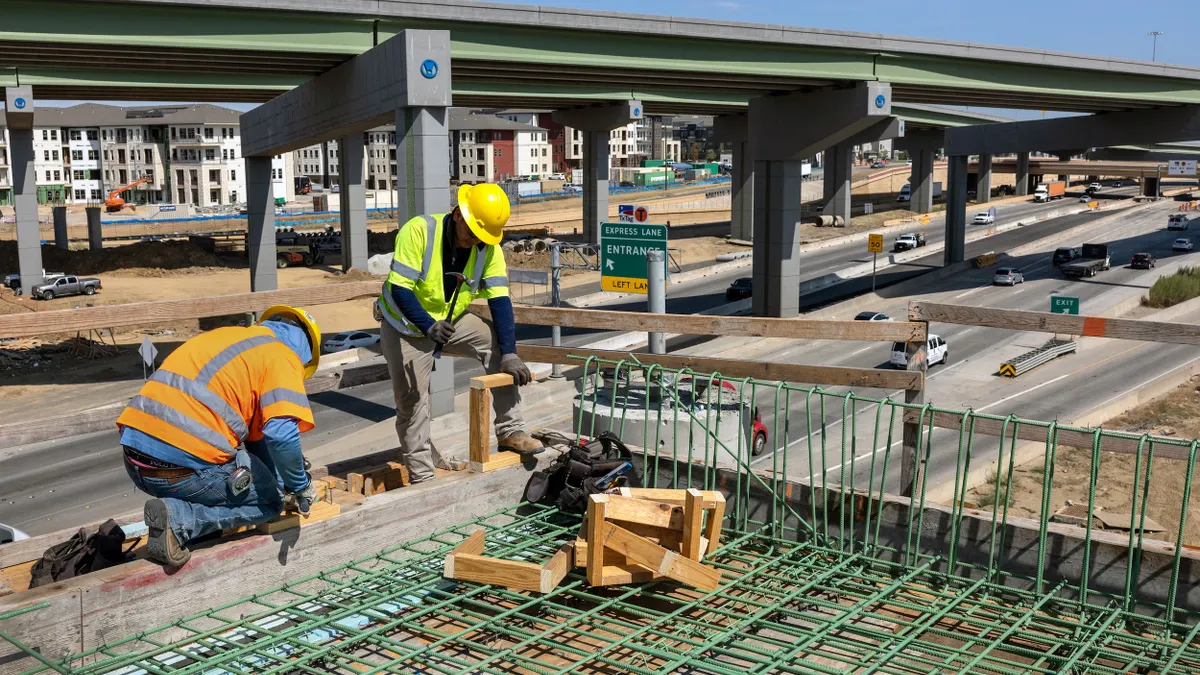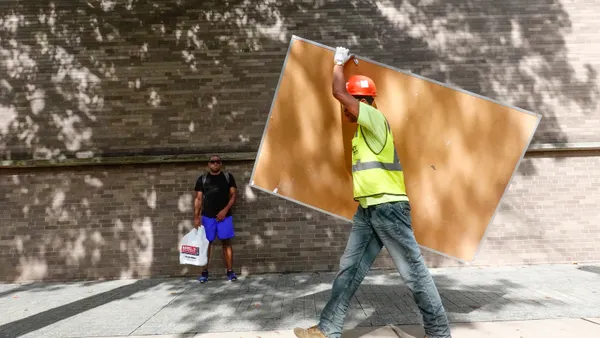This feature is a part of “The Dotted Line” series, which takes an in-depth look at the complex legal landscape of the construction industry. To view the entire series, click here.
Construction attorney Eric Singer is a huge Game of Thrones fan, so it’s fitting that he points to the HBO series’ best known mantra when it comes to a potential recession in 2023: Winter is coming.
Like the members of the saga’s House Stark who adhere to that motto, Singer says construction pros today should already be preparing for whatever hardships may come, given predictions of more challenging economic conditions ahead.
Those preparations include reviewing contracts with a potential recession in mind. Critical to the process is knowing what provisions contractors and subs are entitled to, as well as the responsibilities they have to the party on the other side, before a true economic contraction sets in.
“By the time a recession hits, it’s too late,” Singer said.
The wind before the rain
Singer said that in his own practice, he’s seen signs that “winter” may already be here.

“To me, the biggest leading indicator in construction is a change in the nature and frequency of claims, which we’ve been seeing,” said Singer, a partner at Ice Miller in Chicago. “It’s like the wind that blows up before it’s going to rain. You can sort of smell it coming.”
Those claims have come in the form of what Singer calls “late-in-the-game change orders,” which have picked up as projects that kicked off early in the pandemic now approach their final stages.
“What I'm seeing now is contractors getting significantly into a job and realizing they're losing money, and they try to convert that to a change order,” Singer said. “It’s the contractors that are financially on the margins that are leading those changes. We’ve got a bunch of them.”
Attorney Alex Baghdassarian, a partner at Hanson Bridgett in Los Angeles, has noticed a similar uptick in claims, and a new unwillingness among project owners to accept them as interest rates have increased and capital markets have gotten tighter.

“Previously, when there were changes or delays on the project, oftentimes owners would be sympathetic and try to resolve the dispute,” Baghdassarian told Construction Dive. “If the contractor was asking for $100,000 in change orders, they may have negotiated it down to $80,000 or $70,000. That is not happening as much.”
Instead, as owners and developers encounter a more challenging funding environment themselves, Baghdassarian said, they’re saying no more often.
“They don’t want contractors to see them as an open checkbook,” Baghdassarian said. “Unless the contractor can convince them these costs are actually driven by something the owner or design team did, owners are telling contractors they’re out of luck, and that they have to absorb these costs.”

Attorney Adam Richards, a partner at Berger Singerman in Miami, says even though construction activity is still robust in Florida, just the possibility of economic slowing has changed the tenor of recent negotiations.
“We’re not quite sure what’s on the horizon, but regardless, the impact is that everyone starts tightening up,” Richards said. “Everyone starts thinking about risk aversion.”
Seeking shelter before the storm
Against that backdrop, and as financing becomes tighter amid higher interest rates, contractors should protect themselves by checking up on the financial health of any projects they’re on today. They can easily do so, in most cases, by making a request via the financial assurance clause contained in most standard contracts.
“It allows a contractor to ask the owner for reassurance of its capability to continue funding the project,” Baghdassarian said. “The contractor should be entitled to confirm whether the loan is still in place, or if the owner-developer is running into any sort of financial issues.”
Those answers should come as a normal course of doing business. If they don’t, that could be a signal tougher times have already arrived.
“If the owner is nonresponsive, that’s a pretty good indication the situation may be more serious than anticipated,” Baghdassarian said.
Getting in line
Of course, many contractors and subs get wind of problems on a job in another way: when the checks stop coming, even though they’re still doing work.
Before that happens, contractors need to make sure they’ve already issued preliminary notice to owners of their lien rights to a project, should conditions worsen. That notice not only alerts owners that the property could be used as collateral against unpaid debts if a project hits a roadblock, it also establishes the contractor’s place in line as to who will get paid first.
“The key in terms of enforcement of liens is who comes first in time,” Baghdassarian said. That means if a contractor gave proper preliminary notice to an owner prior to funding being secured for the project, that contractor would come before even a bank or other lender in terms of getting paid.
If you didn’t serve a preliminary notice earlier, do so now so that “the value you add going forward is protected,” Baghdassarian said.
Of course, getting to the point where liens are necessary is never a great outcome. Richards advises to make sure you regularly check in on the health of the job before then.
“With every single payment application, you have an opportunity to reconcile the account, and do a deep dive on the project,” Richards said. “Because the outstanding balance can get too large too quickly if you’re not properly tracking it from the get-go.”
Before sending paper, talk it out
When the wheels do come off a project, contractors are often in a precarious position between their subs and the owner they’re trying to get money from (and preserve a relationship with).
In that situation, attorneys universally recommend transparency and open dialogue to keep both owners and subs in the loop, even if a lien is unavoidable.
“Sending something in writing that surprises people is never a good idea,” Baghdassarian said. “Before sending a notice, speak to your owner contact and let them know the situation you’re facing with your own subcontractors. If you’re dealing with people who are honest, that’s usually well received.”
Keep in mind, should you need to file a lien to get paid, doing so is only as good as the owner’s solvency.
“If the property is worth half as much as there are lien claims, you can expect that even if you win, even if you did everything right, you’re not going to collect everything you’re owed,” Singer said.
That, ultimately, is the difference between boom times and bust when it comes to construction
“When times are flush, money covers over a lot of problems,” Singer said. “When times are bad and the owner has money concerns, they can’t fund that spread any longer. That will grind a project to a halt.”
____________________________________________________________
The Dotted Line series is brought to you by AIA Contract Documents®, a recognized leader in design and construction contracts. To learn more about their 200+ contracts, and to access free resources, visit their website here. AIA Contract Documents has no influence over Construction Dive's coverage within the articles, and content does not reflect the views or opinions of The American Institute of Architects, AIA Contract Documents or its employees.















